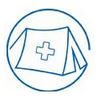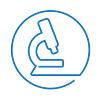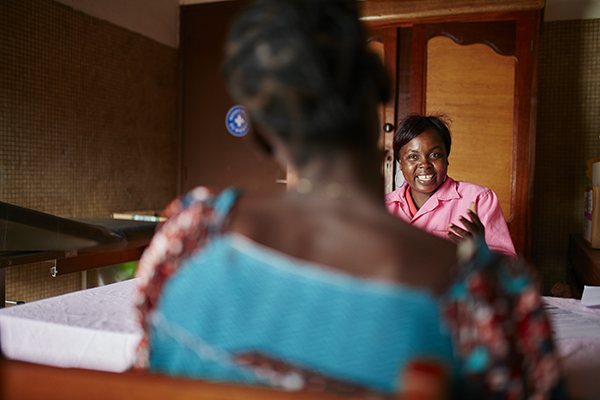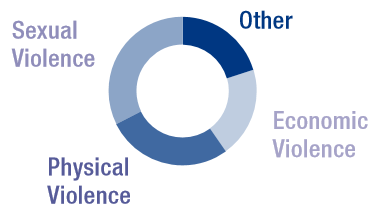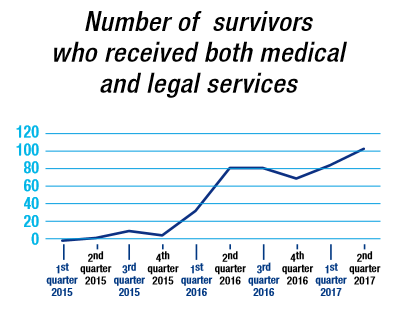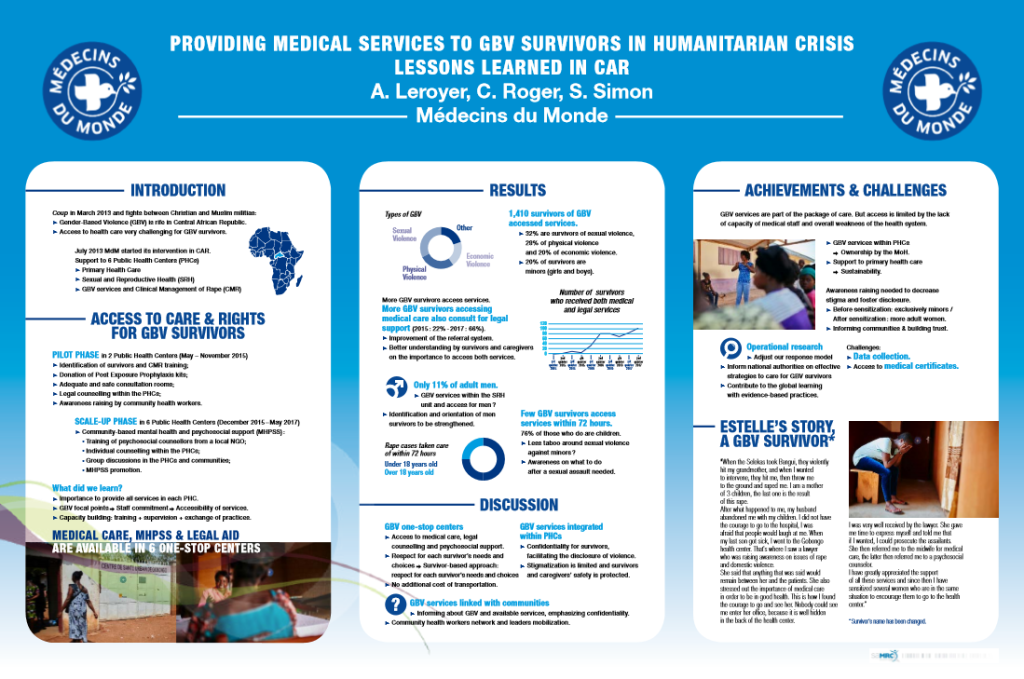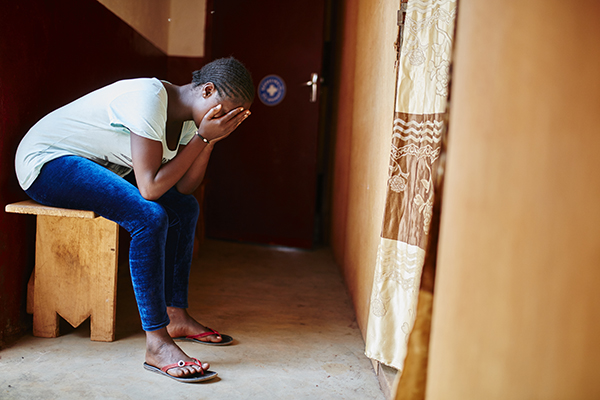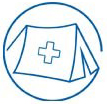Our actions
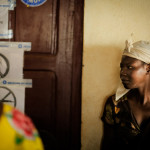
© Sebastien Duijndam
The Foundation supports the Association of Women Lawyers of Central Africa and its action at two health centres in the capital, Bangui, which provide comprehensive and free healthcare to victims of gender-based violence all under one roof. Medical care, psychosocial support, and legal aid are all provided.
TOGETHER WITH THE ASSOCIATION OF WOMEN LAWYERS OF CENTRAL AFRICA (AFJC)
In Bangui, the AFJC assists victims of gender-based violence in two health centers. There, women and children can receive comprehensive and free treatment and support. The president of the association, the lawyer Lydie Mbelet Koudja, tells us more about this exemplary approach that could be used in other conflict zones.
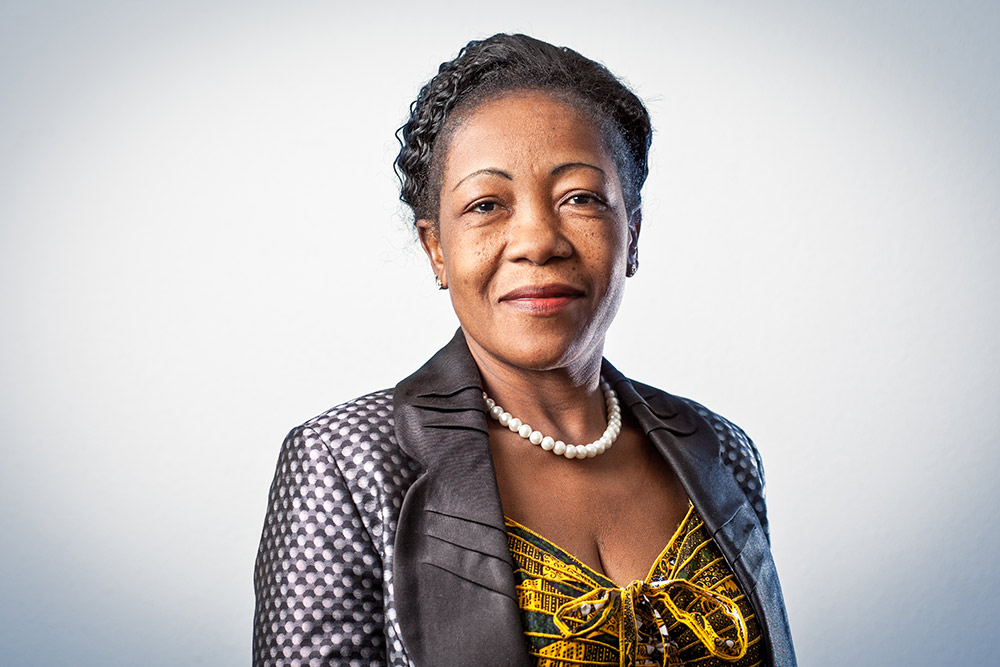
Thanks to the awareness activities implemented by the association, the number of victims of gender-based violence coming to the health centers has been increasing
What is the mission of AFJC?
Since 1992 we have been fighting for the promotion and the protection of human rights in general and women and children rights in particular. However, the situation of the women in CAR has recently become unbearable. Therefore, we decided to focus our action on gender-based violence.
When and how was the Bangui project born?
This project was born in 2015, through a partnership with Médecins du
Monde, and has been reinforced in 2017 with the support of the Fondation des Amis de Médecins du Monde. More specifically, consultation rooms have been built in two health centers, for the victims to be able to receive psychosocial and legal support in addition to health care, in complete trust and confidentiality. Our legal officers provide legal referencing, and a lawyer ensures the legal follow-up in front of the courts.
Can you measure your action?
In 2016, we registered 110 complaint files, 100 successful conciliations and 5 arrests. Since the beginning of the project, victims are coming in numbers thanks to the activities of mass and proximity awareness. Tongues are being loosened and we are well identified: At the beginning of 2017, we already assisted 200 women with legal advice.
What is your long-term goal?
We would like to bring this project to the victims inland, where the armed groups are present and the atrocities are still committed, such as Kaga-Bandoro, Bria, Bangassou, or Alindao. However, I would like to sincerely thank the Fondation de Amis de Médecins du Monde which helped us expand our field of view. I am convinced that our collaboration will grow in the future!
The Sexual Violence Research Initiative Forum
In September 2017, for the first time Médecins du Monde participated in the Sexual Violence Research Initiative forum, which gathered 450 researchers, activists and NGOs coming from all around the world. We presented the first results of our work in Central African Republic, highlighting the necessity of services including medical care and legal and administrative advice. This work was implemented by the AFJC, with the support of the Fondation des Amis de Médecins du Monde.
BACKGROUND
March 2013: coup and fighting between Christian and Muslim militias.
- Gender-based violence (GBV) is committed in Central African Republic.
- Access to healthcare is very difficult for the victims of GBV.
July 2013: launch of the program from Médecins du Monde in CAR. Supporting 6 public health centers regarding:
- Primary healthcare
- Sexual and Reproductive care
- Fighting GBV; training workshops for appropriate medical treatment of rape.
From May to November 2015: pilot phase in 2 public health centers.
- Identification of victims and medical training for rape treatment
- Donation of post-exposure prophylaxis kits
- Adequate and safe consultation rooms are made available
- Legal advice within the public health centers
- Awareness of community health workers
From December 2015 to May 2017: second phase, in 6 public health centers:
- Training of psychosocial counsellors from a local NGO
- Individual consultation within public health centers
- Awareness activities in public health centers and communities
- Promotion of mental health and community-based psychosocial support
RESULTS
Types of GBV
1 410 victims of gender-based violence had access to our services.
- 32% of them are victims of sexual violence, 28% of physical violence and 20% of economic violence.
- 20% of the victims are under-age.
Beneficiaries
An increasing number of people are accessing our services. An increasing number of GBV victims coming for medical care also receive legal support (2015: 22% – 2017: 66%).
Few vict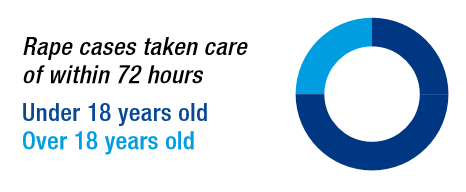 ims are accessing care within 72 hours following the violence. Among the rape cases treated within 72h, 76% of them concern children (under age 18).
ims are accessing care within 72 hours following the violence. Among the rape cases treated within 72h, 76% of them concern children (under age 18).
Grown men only represent 11% of the people receiving care from our activities.
TESTIMONY
The story of Estelle*, victim of gender-based violence
“When the Sélékas took over Bangui, they violently hit my grandmother. When I tried to intervene, they punched me, slammed me to the floor and raped me. I am a mother of three, the last one is the result of the rape.
After what happened to me, my husband left us, telling my parents that I am a Séléka wife and that he cannot continue living in such shame. I did not find the courage to go to the hospital. I was afraid people would laugh at me. When my last son fell ill, I came to the Gobongo health center. There I saw a legal expert facilitating awareness activities on rape and domestic violence.
She told us that everything said there would remain there. She also highlighted the necessity of medical care to be in good health. That is how I found courage, after the visit for my son, to go see her. Nobody could see me enter her office, because it is well hidden behind the health center.
I was well received by the legal expert. She left me time to speak and told me that if I wanted I could sue the abusers. She also referred me to the midwife for medical care. The latter then oriented me towards a psychosocial counsellor. I very much liked the support coming from all those services and I have been raising awareness of several women living the same situation since, encouraging them to go to the health center.”
* The name of the person was changed.
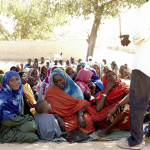
Almost 100,000 people coming from central Somalia, Ethiopia and even Yemen have sought refuge in Bosaso. The Somalian association, Integrated Services for Displaced Populations,
(ISDP) runs or supports 8 maternal health facilities, 1 mobil clinic and 5 primary health units. ISDP is working there to provide access to care for women and children.
With the support of the Foundation, more than 52,000 women have had access to antenatal care during their pregnancy. 160,000 children have been vaccinated against polio, tuberculosis and measles.
One of ISDP’s other successes is the mobilization of community stakeholders to spread messages on prevention and commit themselves to combating violence against women. The association wishes to continue its work training health workers, and mobilising the community. It also aims to open healthcare facilities 24 hours a day.
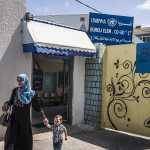
© Olivier Papegnies
The Culture and Free Thought Association (CFTA) was created in 1991 in Gaza, Palestine, by 5 women acting in favor of women’s rights and the training of female leaders. Nowadays CFTA runs 5 centers for children, young people, women and disable people, with a human rights-based approach.
It is an independent, activist association working on sensitive topics but always with quality.
The project supported by the Fondation des Amis de Médecins du Monde follows 3 years of work carried out by Médecins du Monde to build the capacities of CFTA in providing quality family planning services and introducing modern contraceptive methods. The Gaza Strip currently faces a shortage of contraceptives and suffers from the lack of involvement from the Health Minister. The project aims at ensuring the availability of contraceptive methods in the CFTA center for women, and at carrying out advocacy actions to mobilize stakeholders for long-term solutions.
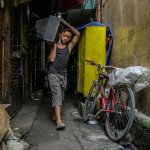
© Lam Duc Hien
Manila, Philippines. Many unofficial recyclers dismantle electrical and electronic waste. The recyclers have started to get organised to improve their working conditions and their living environment and therefore reduce the harm to their health and build a better future for their families. The Friends of Doctors of the World Foundation helps the associations that have been created, so that they can continue with their actions in harm prevention, education and the promotion of their rights. A consultant was recruited to strengthen their project management and financial monitoring capabilities.
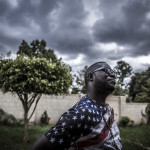
© Olivier Papegnies
In Uganda, the Fondation des Amis de Médecins du Monde chose to support community-based LGBT organizations, in an overall context of repression and violence towards these communities. This partnership enables LGBT leaders to undertake a training program of humanitarian leadership, and participates in the capacity building of community-based organizations that fight in favor of the rights and access to healthcare of the LGBT populations.
This training program represents a continuation of Médecins du Monde’s work with the local Ugandan organization MARPI (Most At Risk Populations Initiative) that has been providing HIV treatment and sexual and reproductive health services to these populations (homosexuals, sex workers, etc.) in Kampala, the capital city, and its surroundings, since 2009. Despite a repressive legal context, MARPI succeeded in building a relationship of trust with the Health Ministry and the National program to fight HIV/AIDS. Both entities understood the public health issues related to access to healthcare for LGBT people.
The Fondation’s support will contribute to the capacity building of LGBT organizations in the country.
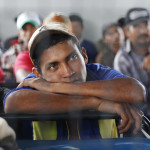
© Tomas Bravo – Reuters
The Fondation chose to support the Association of Guatemalan returnees (ARG – Asociación de Retornados Guatemaltecos), in Guatemala, sole community-based association to be involved with the people forcibly repatriated from the USA to Mexico and Guatemala.
The association was founded in 2013 by forced returnees and currently has 15 active volunteers. In Guatemala, 700 to 800 migrants forcibly repatriated from the USA and Mexico arrive every week at the capital airport. Most of them left Guatemala years ago and did not retain local ties. The association welcomes, guides and assists these migrants upon their arrival, and provides care and global support to help them resettle under the best conditions possible.
The project supported by the Fondation is more specifically focused on capacity building regarding the services provided by the ARG, through the creation of practical tools and the development of a guideline for medical care. Our support will allow them to establish themselves in locations such as Huehuetenango, Ayutla and San Marcos along the Mexican border, to carry out advocacy and awareness-raising actions for stakeholders from the State institutions, civil society and private sector.
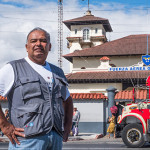
© Jeoffrey Guillemard
TOGETHER WITH THE ASSOCIATION OF GUATEMALAN RETURNEES
The ARG president, Gustavo Adolfo Juárez Panamá, himself a returnee from the USA, explained to us how the association works with forcibly repatriated people.
What is the mission of the Association of Guatemalan Returnees?
We are a civil society organization composed of men and women forcibly repatriated from the USA. We met in Guatemala thanks to a project developed by the International Organization for Migration (IOM) in 2013. The association’s goal is to support migrants forcibly repatriated to Guatemala. To this end, we carry out advocacy activities for governmental institutions, in order to improve the reception and global care of the returnees, particularly concerning issues related to work and health.
In 2016, as a result of the advocacy activities, a dedicated space has been allocated to the association within the reception center of Guatemala City for returnees coming from the USA by plane. This space has allowed us to bring assistance to the returnees, psychosocial and specific support for those with no family in Guatemala, and financial support for the transport or phone calls to their relatives.
What is the context in which the ARG works, and what support does the Fondation des Amis de Médecins du Monde bring?
Since 2001, migration issues have become a question of national security for the USA, following the terrorist attack. In this context, the security at the borders has been reinforced and the immigration rules have been tightened, increasing border control, counter-terrorism actions and control of irregular immigration. The USA are currently deporting an increasing number of people with irregular migration status.
In 2016, they deported by plane 32 020 people towards Guatemala. The same year, the ARG was able to provide support for nearly 3 500 people. In front of the expected rise in the number of forced returnees in Guatemala, thanks to the support of the Fondation des Amis de Médecins du Monde, the ARG plans to carry out advocacy actions and to increase the number of reception centers, which will allow the association to continue providing support to migrants in the center of Guatemala city, and to expand their coverage to other cities along the Mexican border, in order to provide specific assistance to returnees coming from Mexico. They will also continue their activities for psychosocial care and access to rights for the forcibly repatriated migrants.
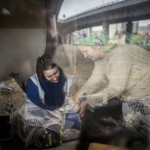
© Olivier Papegnies
The team from the Passage Research unit (National Centre for Scientific Research/ University of Bordeaux) is proposing an action- research project entitled First Steps.
First Steps aims to produce new quantitative and qualitative data on the healthcare pathways of migrants who are eligible for state medical support. On the basis of this data, they will work with the relevant stakeholders to devise suitable plans and to improve care in the healthcare facilities.
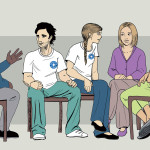
Lead by sociologist Éric Le Grand, a professor at the EHESP in Rennes (École des Hautes Etudes en Santé Publique / School of Advanced Studies in Public Health), a three year action research project is currently being financed by the Foundation and is linked to the Doctors of the World program at the detention centre and prison in Nantes.
By giving prisoners, men and women, the chance to be heard, as well as prison staff and nursing staff, the aim is to improve the health of the inmates. In a closed prison environment, security restrictions make access to medical care more complex: it is difficult to uphold patient confidentiality, the waiting times for healthcare are too long etc.…
Today, one year after the project launch, the community approach established by Doctors of the World and analysed by Eric Le Grand reveals initial positive results that should now be consolidated. Prisoners, guards and caregivers: all parties involved have seen their skills enhanced in matters of health. Indeed, in the women’s wing, the prisoners are already getting together like genuine community health workers.
Soon, this project will be the subject of publications and exchanges with other penitentiary institutions, which will allow them to share these methods of improving access to healthcare.
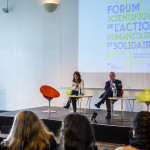
© Valentina Cugusi
The Friends of Doctors of the World Foundation supported the third Scientific Day of Humanitarian Action and Solidarity. This meeting provided the opportunity for an annual discussion on the issues of health, insecurity and humanitarian action in France and abroad, particularly highlighting research results and advancements within the medical and social fields.
In 2017, the Scientific Day of Humanitarian Action and Solidarity took place during a busy political period due to the presidential and legislative elections. The conference questioned the weight carried by research and humanitarian experience in political decision making. This event was supported by the Friends of Doctors of the World Foundation on the occasion of World Health Day.
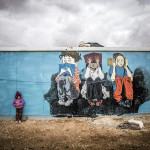
© Olivier Papegnies
In 2016, the war in Syria entered its 6th year. Almost 1.3 million Syrian refugee men, women and children live in Jordan. Most refugees have been exposed to violence and shock. Their living conditions are precarious and it is very difficult for them to envisage their future, which causes anxiety and other mental health disorders such as depression.
The Foundation has chosen to support Bright Future, a Syrian-Jordanian association providing aid for children in severe psychological distress and for their families.
Around 850 consultations have been conducted by psychologists and psychiatrists. 1,610 people have been visited in their homes.
Parental help sessions were attended by 125 parents, mostly mothers. These sessions enable them to find the necessary and appropriate ways of dealing, as parents, with signs of suffering, distress or aggression from their children.
The Friends of Doctors of the World Foundation campaigns for sustainable humanitarian action. Its mission is to:
· Develop technical and scientific research.
· Give all vulnerable populations the ability to take charge of their own futures and assert the full scope of their rights.
· To shape, inform and promote the dissemination of proven medical and social developments.
· To encourage local campaigners, in France and abroad, and help them to carry out their own solidarity endeavours.





